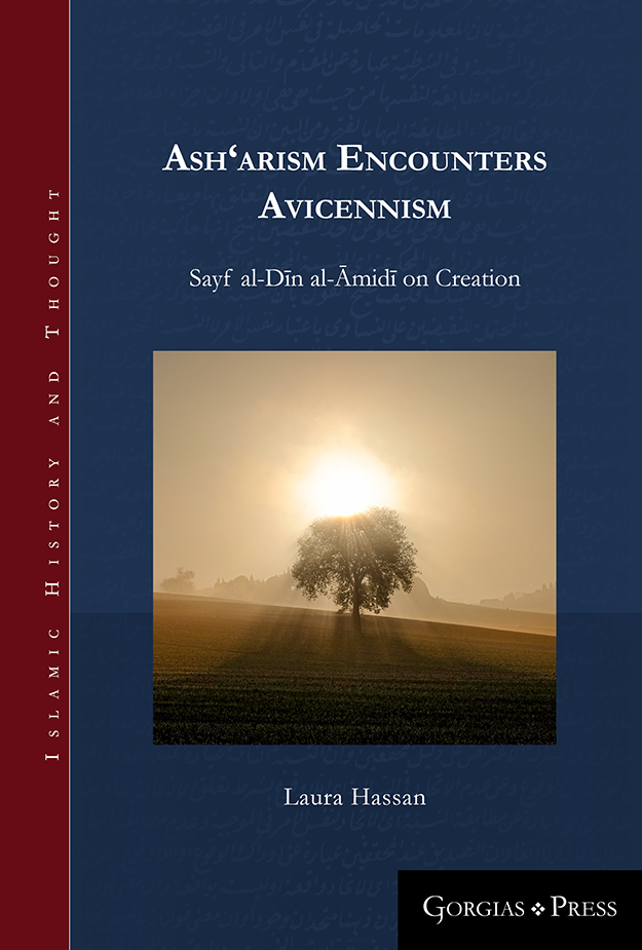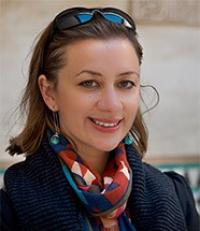New Publication from Gorgias Press: ASH’ARISM ENCOUNTERS AVICENNISM: Sayf al-Dīn al-Āmidī on Creation
IIQSA is delighted to announce a new publication from its institutional partner, Gorgias Press titled Ash‘arism Encounters Avicennism: Sayf al-Dīn al-Āmidī on Creation by Laura Hassan. Readers can find details on the publication below and purchase a copy at this link!
 Series: Islamic History and Thought 19
Series: Islamic History and Thought 19Summary: This study of Sayf al-Dīn al-Āmidī’s (d. 631/1233) teachings on creation offers close analysis of all of his extant works of falsafa and kalām. Some of these were not known to previous scholars, yet they bear witness to key facets of the interaction between the historically inimical traditions of Hellenic philosophy and rational theology at this important intellectual moment. Al-Āmidī is seen to grapple with the encounter of two paradigms for the discussion of creation. On the one hand, Ibn Sīnā’s metaphysical concept of necessity of existence is the basis of his doctrine of the world’s pre-eternal emanation. On the other, for the mutakallimūn, the physical theory of atomism bolsters the view that God created the world from nothing.
Though he begins with a posture of acceptance towards both the doctrines and methods of Ibn Sīnā, al-Āmidī gradually evolves to a position of hostility towards the entire philosophical tradition. Nevertheless, deep tensions are present in his thought; on the one hand, Ibn Sīnā’s notion of the sheer necessity of God’s existence is so compelling theologically that it becomes the mainstay of al-Āmidī’s understanding of the God-world relationship. Yet some of its more problematic implications are targets for al-Āmidī’s fierce opposition by the time of his mature works of kalām. Underlying all this is the often unstated, but all pervasive, influence of al-Āmidī’s highly successful peer, Fakhr al-Dīn al-Rāzī (d. 606/1210).
This study is of interest to scholars of Ibn Sīnā and Ash‘arism alike, as it advances our understanding of the ongoing tradition of rational theology in the Islamic world, long past Abū Ḥāmid al-Ghazālī’s (d. 505/1111) famous attack on the philosophers.
Praise for this Book:
“In a superb work of intellectual biography, Laura Hassan takes us on a fascinating journey through al-Āmidī’s unique and ever evolving appropriation of Avicennan ideas into an Ash‘ari theology of creation. This is an immensely important contribution to our understanding of how Ash‘ari theology in the 12th and 13th centuries navigated the treacherous path from its classical expression through the challenges posed by the philosophy of Ibn Sīnā.”
– Jon Hoover, Associate Professor of Islamic Studies, University of Nottingham
”Laura Hassan’s Ashʿarism Encounters Avicenna: Sayf al-Dīn al-Āmidī on Creation is the first extended study of the post-Avicennan philosopher and theologian Sayf al-Dīn al-Āmidī. The work truly fills a lacuna in the literature, and does so in a clear and philosophically engaging way. The issue of the world’s age, which is at the core of Hassan’s work, was unquestionably one of the most hotly debated topic in the medieval Islamic intellectual world. Hassan not only contextualizes that debate in order to explain al-Āmidī’s own evolving position and then complete turn-around, but also integrates discussions of possibility, necessity, atomism and even the nature of post-Avicennan physics into her narrative. This is a wonderful book, which I strongly recommend for anyone interested in Islamic philosophy and theology at the end of the classical period.”
– Jon McGinnis, Professor of Classical and Medieval Philosophy, University of Missouri, St Louis
 About the Author: Laura Hassan is Faculty Associate of the Oriental Institute, University of Oxford, where she teaches Islamic philosophy and theology. Her research to date has focused on post-classical developments in Ash’arī kalām in the aftermath of Ibn Sīnā’s groundbreaking philosophy. More broadly, she is interested in theological issues that arise where competing world-views meet, whether at the intersection of theology and philosophy, at the boundaries of religions, or where the supposedly distinct realms of science and religion come face-to-face, both in our times and historically. She has studied Arabic in Oxford, Fes and Alexandria, and received her PhD from SOAS, University of London.
About the Author: Laura Hassan is Faculty Associate of the Oriental Institute, University of Oxford, where she teaches Islamic philosophy and theology. Her research to date has focused on post-classical developments in Ash’arī kalām in the aftermath of Ibn Sīnā’s groundbreaking philosophy. More broadly, she is interested in theological issues that arise where competing world-views meet, whether at the intersection of theology and philosophy, at the boundaries of religions, or where the supposedly distinct realms of science and religion come face-to-face, both in our times and historically. She has studied Arabic in Oxford, Fes and Alexandria, and received her PhD from SOAS, University of London.
[Content courtesy of Gorgias Press]
© International Qur’anic Studies Association, 2020. All rights reserved.
